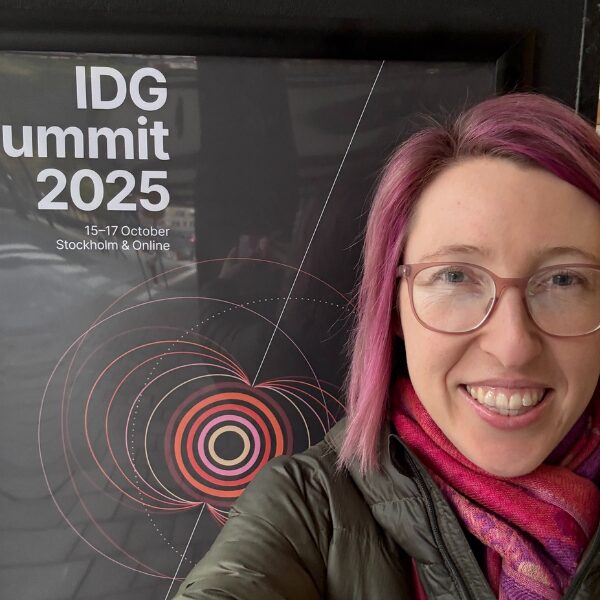SBC’s Head of ESG Jay Crangle has recently returned from Sweden after being selected for the prestigious Inner Development Goals Ambassador Programme – a global initiative focused on the inner capabilities needed to accelerate the SDGs. In her latest blog she reflects on some of the learnings and insights from the journey that took her to Ekskäret Island and the IDG Summit.
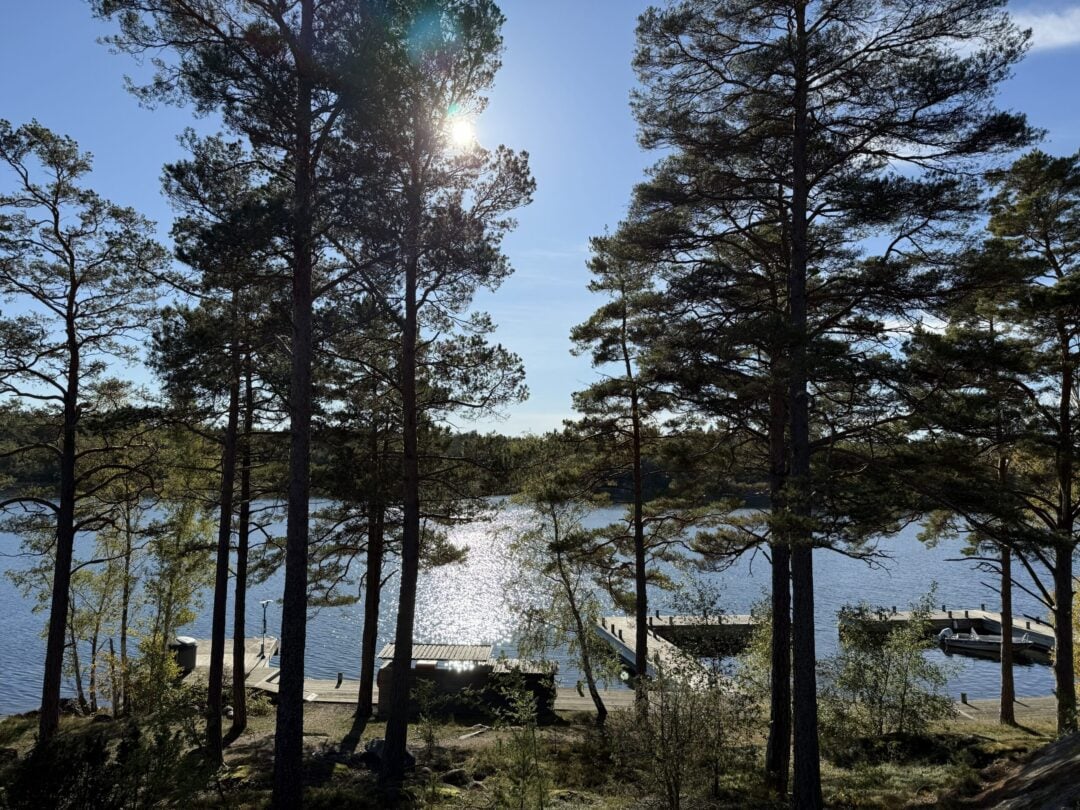
I’m writing this from a Café Nero in London. I can see the teenager sitting alone across from me is upset. I want to go check if she is ok, but I am paralyzed by the very human fear of standing out. No one else is getting up. Checking in on other people is not the norm in London. I worry how she will respond – what if she wails loudly and then the whole 4 other people in the café look at her? Or, even worse, what if they look at me?
Then I remember the core message from five days immersed in the Inner Development Goals (IDG) Ambassador Programme on a Swedish island: our global crises stem from disconnection – from ourselves, each other, and nature. Reconnection is the path through the chaos.
And so, I say hello.
Why
I wish I could say we then had a deep and meaningful moment that fundamentally changed the trajectory of both our lives. In truth she said, ‘thank you, I’m fine’ and we both continued quietly eating our overpriced muffins.
Still, that moment reminded me: we have the tools, tech, and resources to thrive – but we’re not moving fast enough. We’re stuck, like the meme of the dog in the burning room saying, “This is fine.”
As many of you reading this already know, all is not fine. We are living in a time of significant social, environmental, economic and political upheaval – and I think we’re only at the beginning of the rollercoaster. And we have two pretty powerful psychological forces holding us back from acting:
- Social cohesion: the pressure to conform and not stand out.
- The bystander effect: assuming someone else will act.
The IDGs remind us we can act and we have agency to shape the world we want to live in.
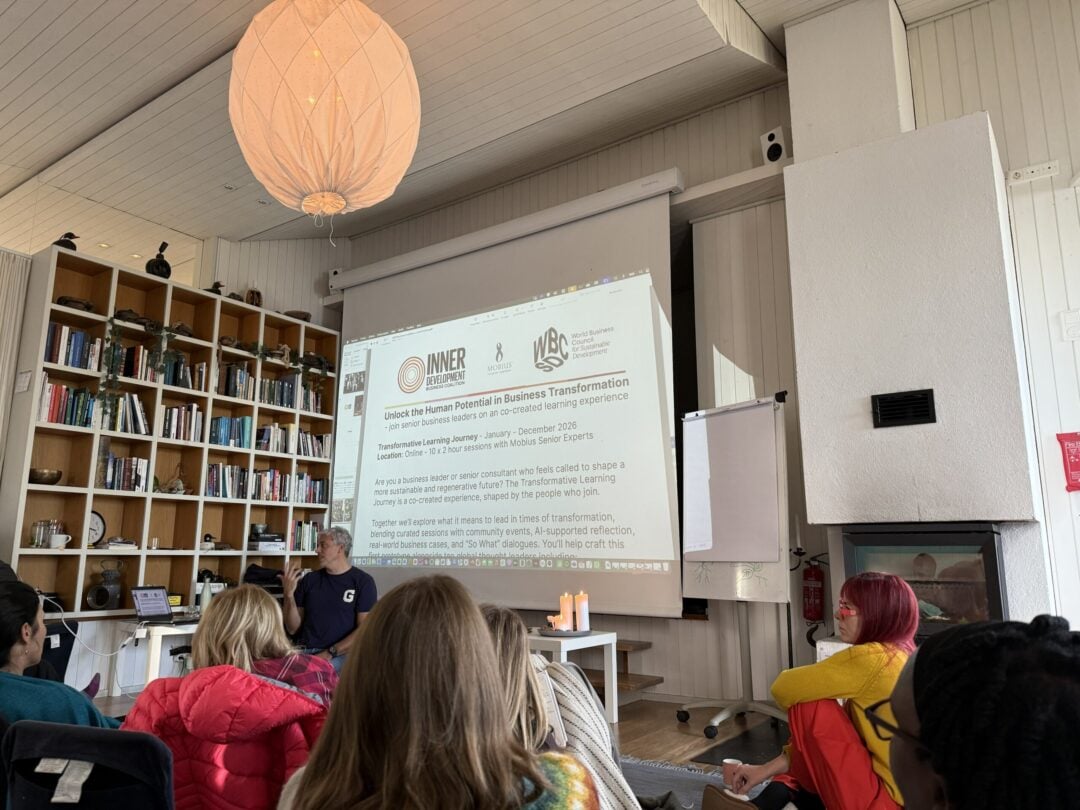
What
The IDGs emerged from the realisation that progress on the Sustainable Development Goals (SDGs) was too slow. Drawing from loads and loads (yes, I have forgotten the official number of academic papers cited) of extensive research in adult development, the IDGs identify five dimensions and key inner skills that enable transformative change – starting with ourselves.
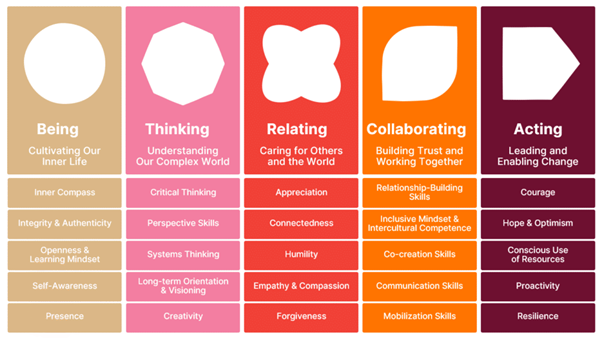
As well as the Ambassador programme, I attended the IDG Summit in Stockholm where the speakers brought many of the skills to life through examples of their work. Four skills stood out:
- Integrity and authenticity: brought to life by Christiana Figueres (Former Executive Secretary UNFCCC, & Founding Partner, Global Optimism) and Kirsten Dunlop (CEO, EIT Climate-KIC) who shared personal stories of why they do what they do.
- Forgiveness: Reflected by Imam Dr. Muhammad Nurayn Ashafa and Rev. Dr. James Movel Wuye, who found friendship across opposing sides of Nigeria’s armed conflict, creating an interfaith mediation centre.
- Resilience: Richard Threlfall (Former KPMG Global Head of Infrastructure and Transport) who framed sustainability as long-term business resilience.
- Appreciation: Cindy Vuu (CEO, Biti’s footwear, Vietnam) who made happiness a core business philosophy – making employee inner well-being a KPI and linking a healthy workforce to healthy profits.
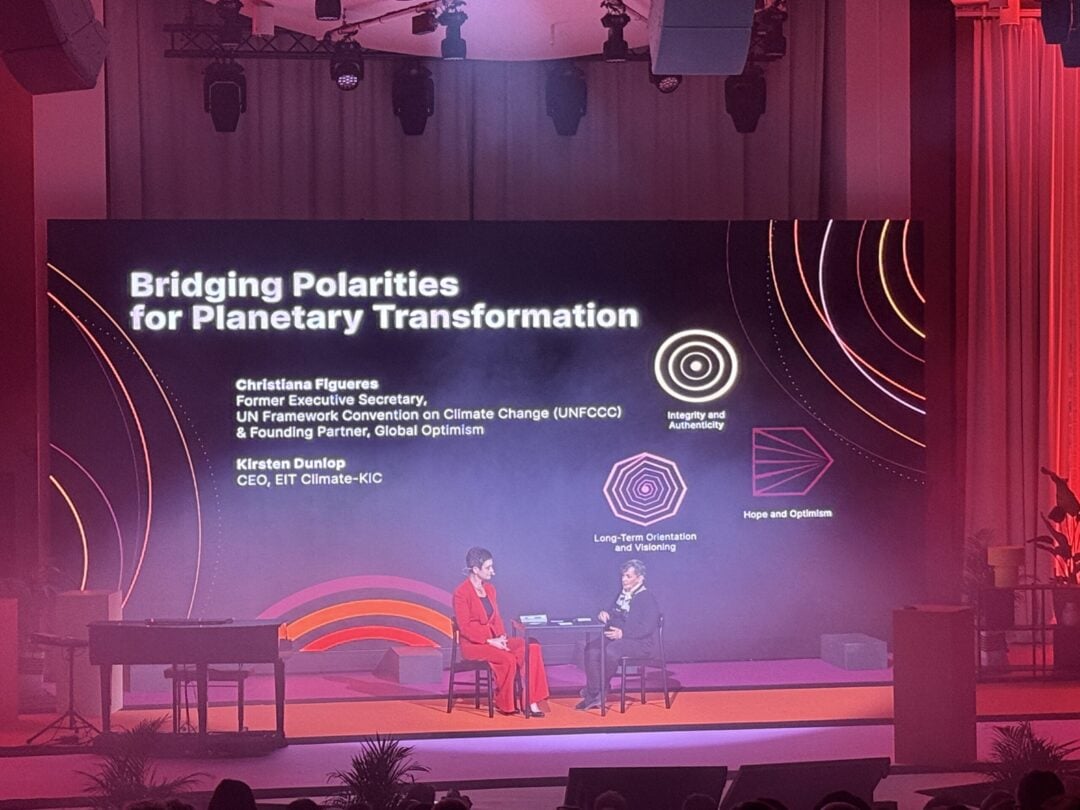
Who
The global ‘who’ of the IDGs is the Inner Development Goals Foundation in Sweden – the initiative behind the IDG guide. This initiative was co-founded by SBC’s global organisation, the World Business Council for Sustainable Development (WBCSD). There are now 700 IDG hubs globally, including the one we at SBC run for the business community in Aotearoa New Zealand. My own ‘who’ was the cohort of 22 other excellent humans who joined me on the island of Ekskäret. From Belgium to Brazil, Thailand to Taiwan, we were teachers, farmers, executive coaches, scientists, faith leaders, and more. We went from strangers to friends, from unknown to known (karaoke helped – though I’m horrified to hear rumours there is footage of me belting out Paradise City).
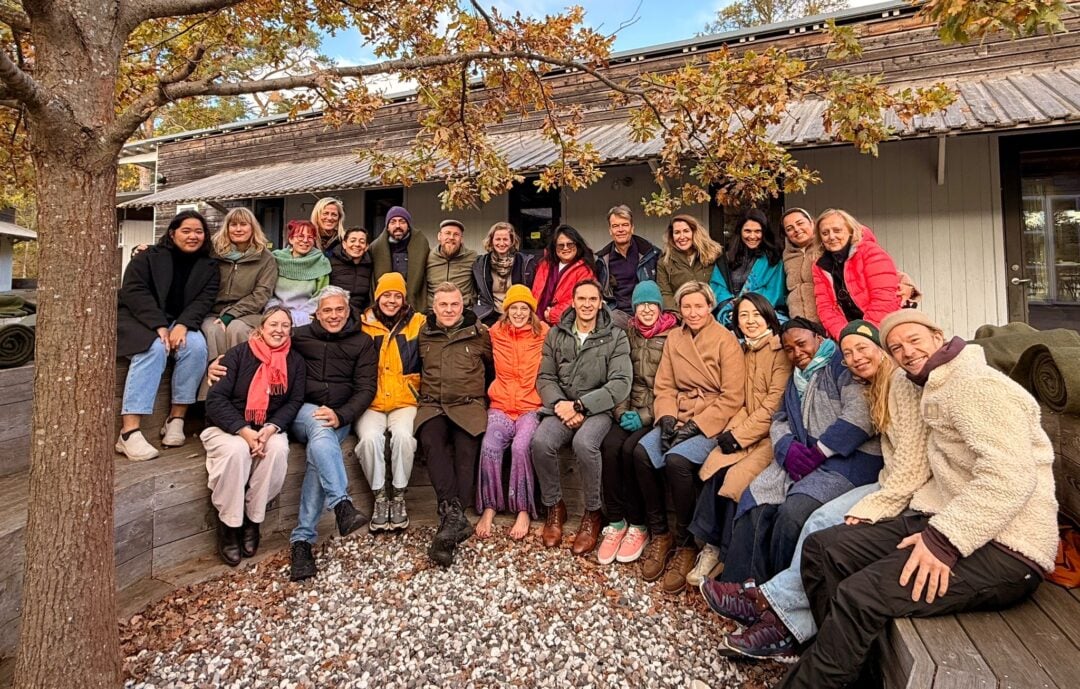
How
Before leaving I was worried my time on the Ambassador programme was going to be too ‘woo woo’. To be clear, I am mildly woo woo myself. Probably 50% woo on a good day.
But rather than being a case of either ‘super woo woo’ or ‘relevant in a business context’ it was a case of both, not either or.
Many of us arrived on the Ambassador Programme wanting a checklist. “Give me the 10 steps to apply the IDGs!” But we learned, implementation depends on context.
A teacher is integrating one skill per week into her lessons. An executive coach is embedding the dimensions into leadership programmes. At SBC, I will be working with businesses to share the value of the skills in the IDG movement as one way of creating system level change.
What’s next?
My role is to bridge “woo” and “do.” So no kumbaya circles at the next SBC Advisory Board meeting. Instead, we’ll be integrating IDG skills into our existing SBC programmes, events, tools and collaborations. We’ve already piloted two resilience-focused workshops and plan to scale up next year.
To change the world, you have to change the people. If you are interested in doing things differently, in forging a new, positive path where humanity and nature thrive, then drop me a line.
Thanks to Beca and WeAll for financial support to help get me there, the SBC team for holding the fort in my absence, Cultivating Leadership for introducing me to the programme, and New Zealand’s other IDG Ambassador Gary Shaw for his support.

